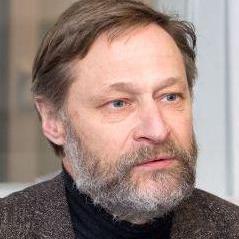Columns
The Putin-Lukashenko tango
Putin is doubtless seeking payback after Lukashenko’s public refusal last year to consider deeper integration with Russia.
Dmitry Oreshkin
Russian President Vladimir Putin’s public statements about the mass protests in Belarus have been at once forceful and ambiguous. For example, he says that a ‘law enforcement reserve’ force has been prepared for potential engagement in Belarus. But that could mean personnel ranging from traffic cops and the police who break up demonstrations to the Federal Security Service (FSB, the main successor to the Soviet-era KGB) and heavily armed military units like the Rosgvardia (Russian Guard).
And what circumstances actually would prompt Russia to intervene? Putin says the ‘reserve’ would ‘not be used until the situation starts getting out of control’. But who decides that? If it is up to Belarus’s beleaguered dictator, Alexander Lukashenko, Putin could say that the Kremlin will act only ‘at the request of the legally elected president of the republic’. That, after all, is how the Soviet Union framed its military interventions in Hungary in 1956 and Czechoslovakia in 1968.
But Putin has said nothing to this effect. In fact, his public statements suggest that he thinks he, not Lukashenko, should be in charge of the political process in Belarus. This has left Lukashenko hemmed in by a paradox: It would be better to risk being overthrown than to turn to Putin for military support.
Lukashenko understands that insofar as power in Belarus relies on force, it lies with whoever commands the most bayonets. If a significant number of bayonets loyal to someone else were to show up, Lukashenko could be transformed into a Putin puppet and effectively removed from power. This would work well for the Kremlin, but not for Lukashenko. From his perspective, peaceful protesters pose a lesser threat than armed Russian troops.
Lukashenko will most likely rely on his tried-and-true strategy for dealing with Russia. He will signal his intent to remain closely aligned with his eastern neighbour, emphasising their centuries-old geopolitical connection (even though this relationship has long since passed its expiration date). Then, he will seek political and financial support in exchange for declaring these commitments.
Already, the Kremlin has announced its readiness to restructure Lukashenko’s longstanding oil and gas debt. But writing off old debts does not mean new funds, which is what Lukashenko needs. Hence, he is probably hoping to stabilise the domestic situation somewhat so that he can then blackmail the Kremlin. Rather than demanding repayment, he would argue, the Kremlin should really be sending him more funds to support Belarus’s role as a strategic buffer against NATO.
And yet, the threat of NATO aggression has increasingly become a bluff, and both Lukashenko and Putin know it. A growing number of citizens, particularly Internet users under 50, are not nearly as ready as previous generations were to believe Lukashenko when he claims that ‘NATO troops are clanging their tracks at our gates, there is a build-up of military power on the western borders of our country’.
Nonetheless, such rhetoric does advance both Putin’s and Lukashenko’s interests. The supposed Western threat allows them to justify their own prolonged rule. Putin’s motivation is transparent. During his long political career, he has enjoyed three bursts of popularity, each following small, seemingly victorious military campaigns—in Chechnya in 2000, in Georgia in 2008, and in Ukraine in 2014. Given this track record, it is no surprise that he would try to play the same game in Belarus, offering Russians yet another shiny object signifying Russia’s greatness.
Moreover, Putin is doubtless seeking payback after Lukashenko’s public refusal last year to consider deeper integration with Russia. At the time, Putin was worried about his 2024 term limit and hoping to reset the clock by uniting Belarus and Russia in a ‘new’ country (with him in charge, of course). But Lukashenko is too jealous of his own power to make any such sacrifice.
In the event, Putin instead held a ‘popular vote’ this year to amend the constitution and ensure his continued rule at least until 2036. And, because the plebiscite turned out to be more arduous, expensive, and controversial than expected, the Kremlin is now eager to humiliate and punish Lukashenko, even if it means writing off his debt.
Lukashenko, meanwhile, has also been trying to tilt the situation in his favour. He and policymakers in Europe were not the only ones parsing Putin’s remarks about a ‘reserve’ of law enforcement standing ready. The protesters in the streets of Minsk and other Belarusian cities face the risk of weakening one dictator only to have him replaced by a stronger, more remote one. And if events take a serious turn for the worse, Belarusians could even end up with a military conflict raging within their borders.
But the more likely scenario is that Belarusian security forces will continue trying to suppress the demonstrations, and Lukashenko will resist Putin’s overtures to send in ‘little green men’, as he did in occupying and then annexing Crimea in 2014.
Putin knows not to bother negotiating with Lukashenko unless he has a stick in the hand and a carrot in the pocket. Because the Kremlin is almost certain to have a few more economic trump cards up its sleeve, the Russian intervention in Belarus will remain strictly verbal for now.
—Project Syndicate




 9.89°C Kathmandu
9.89°C Kathmandu















